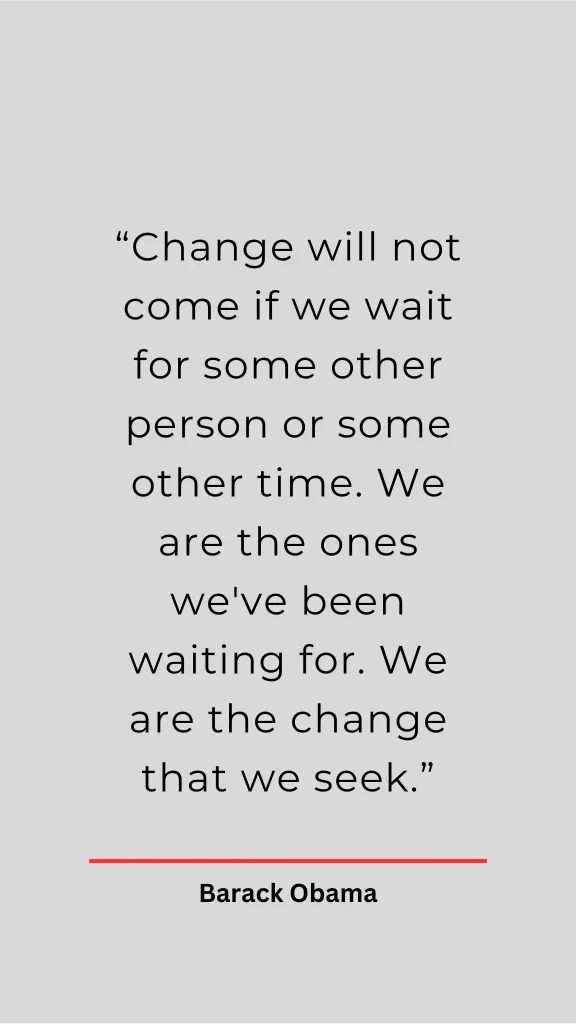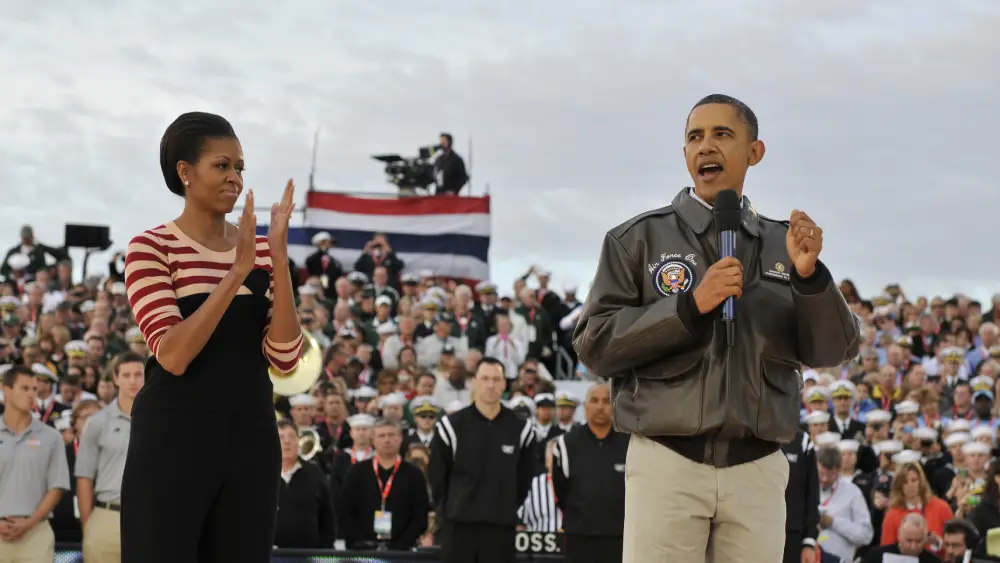Barack Hussein Obama II, born on August 4, 1961, in Honolulu, Hawaii, rose to become one of the most influential political figures in modern American history. As the 44th president of the United States and the first African American to hold the office, Obama’s presidency marked a transformational chapter in the American story—one shaped by hope, resilience, and a commitment to change. His journey from a community organizer in Chicago to the leader of the free world is not only inspirational but emblematic of the possibilities embedded in the American Dream.
This blog explores the life, presidency, achievements, and enduring impact of President Barack Hussein Obama, a man whose vision, intellect, and empathy reshaped global discourse and defined a generation.
Early Life and Academic Excellence
Barack Obama was raised in a multicultural household and spent parts of his early life in Hawaii and Indonesia. His upbringing exposed him to different cultures, races, and perspectives, shaping the global mindset he would later bring to the presidency.
Obama graduated from Columbia University in 1983 with a degree in political science and a specialization in international relations. However, it was during his time at Harvard Law School that he truly began to garner national attention. There, he made history as the first Black president of the prestigious Harvard Law Review. His academic achievements, combined with a growing passion for civil rights, led him to work as a community organizer and later as a civil rights attorney in Chicago.
His legal career included teaching constitutional law at the University of Chicago Law School from 1992 to 2004, emphasizing his deep understanding of the American legal and political system.
The Political Rise: From State Senate to U.S. Senate
Barack Obama’s political career began in earnest in 1996 when he was elected to the Illinois State Senate, representing the 13th District. His work there focused on ethics reform, health care, and education—issues that would remain central themes throughout his career.
In 2004, Obama made a national name for himself when he delivered the keynote address at the Democratic National Convention. His speech, filled with hope and unity, launched him into the national spotlight. Later that year, he was elected as U.S. Senator from Illinois, becoming only the third African American elected to the Senate since Reconstruction.
Obama’s charisma, intellect, and vision for a more inclusive America made him an emerging star in the Democratic Party and paved the way for his presidential run.
Barack Hussein Obama: Historic 2008 Presidential Campaign
Obama’s 2008 campaign for president was both groundbreaking and deeply inspiring. Running against Democratic powerhouse Hillary Clinton in the primaries, Obama secured the nomination with a message centered on “hope” and “change.” His eloquence, digital-savvy campaign strategies, and ability to mobilize young voters and minority communities revolutionized modern political campaigning.
He selected then-Senator Joe Biden as his running mate and went on to defeat Republican Senator John McCain and his vice-presidential pick, Sarah Palin, in the general election. Obama’s victory shattered a centuries-old racial barrier and was celebrated not just in the United States but around the world.
First Term Achievements: Navigating Crisis and Reform
Obama assumed office in January 2009 amid the Great Recession—the worst economic crisis since the Great Depression. He inherited a nation burdened by high unemployment, housing foreclosures, and financial instability. In response, his administration passed the American Recovery and Reinvestment Act, a major economic stimulus plan aimed at saving and creating jobs, reviving infrastructure, and stabilizing the economy.
One of his most influential legislative accomplishments during his first term was the Affordable Care Act (ACA), also known as “Obamacare.” Enacted in 2010, the ACA expanded health insurance coverage to millions of Americans, prohibited discrimination based on pre-existing conditions, and marked the most significant overhaul of the U.S. healthcare system in decades.
In addition to health care, Obama tackled financial reform through the Dodd–Frank Wall Street Reform and Consumer Protection Act, which aimed to prevent another economic collapse by increasing oversight and accountability within the banking system.
Obama also made history by appointing Sonia Sotomayor, the first Hispanic justice, and Elena Kagan to the Supreme Court, ensuring a more diverse judiciary.
Commander-in-Chief: Foreign Policy and National Security
Obama’s foreign policy reflected a shift from unilateralism to multilateral cooperation. He inherited two wars—in Iraq and Afghanistan—and sought to draw down U.S. military presence abroad while targeting terrorism through strategic operations.
In 2011, under Obama’s leadership, the U.S. Navy SEALs executed Operation Neptune Spear, resulting in the death of Osama bin Laden, the mastermind behind the September 11 attacks. The operation was hailed as a major victory in the global war on terror.
Obama also oversaw the end of the Iraq War and increased drone strikes targeting terrorist networks, a strategy that garnered both praise and criticism.
Internationally, he supported the 2011 NATO-led intervention in Libya, contributing to the overthrow of Muammar Gaddafi. Although it fulfilled the immediate humanitarian goal, it also triggered long-term instability in the region.
The Nobel Committee awarded Obama the Nobel Peace Prize in 2009 for his emphasis on diplomacy and nuclear disarmament, sparking global debate but highlighting his commitment to reshaping America’s role on the world stage.

Second Term: Progressive Values and Global Leadership
Re-elected in 2012 after defeating Republican Mitt Romney, Obama’s second term focused heavily on domestic and international progress. In the wake of mass shootings like the Sandy Hook Elementary School tragedy, Obama advocated for stronger gun control, although legislative efforts stalled in Congress.
He continued to champion climate change as a top priority, leading to the signing of the Paris Agreement in 2015—an influential global climate pact aimed at reducing carbon emissions and combating global warming.
Barack Hussein Obama also advanced civil rights by becoming the first sitting president to publicly support same-sex marriage, and his administration played a key role in the Supreme Court’s landmark decision to legalize it nationwide in 2015.
On the international stage, his administration negotiated the Joint Comprehensive Plan of Action (JCPOA) with Iran, a nuclear agreement that aimed to prevent Iran from developing nuclear weapons in exchange for lifting economic sanctions.
Another defining moment was the normalization of diplomatic relations with Cuba after more than 50 years of hostility. The historic move included reopening embassies, easing travel restrictions, and beginning economic engagement.
Obama’s response to the Russian annexation of Crimea in 2014 included economic sanctions, which were later reinforced after evidence of Russian interference in the 2016 U.S. elections.
Post-Presidency: Legacy and Influence
President Barack Hussein Obama left office in January 2017 with high approval ratings, admired both domestically and globally for his intelligence, grace, and leadership. He and his wife, Michelle Obama, founded the Obama Foundation, an organization focused on empowering the next generation of leaders.
In the years following his presidency, Obama remained politically active, campaigning for Democratic candidates and using his platform to promote civic engagement. He was instrumental in the election of his former vice president, Joe Biden, in the 2020 presidential race, showing the enduring influence he holds within the Democratic Party.
Obama also became a successful author, publishing three influential books:
- Dreams from My Father (1995) – a memoir exploring his early life and identity.
- The Audacity of Hope (2006) – offering insights into his political philosophy.
- A Promised Land (2020) – a detailed and reflective account of his political career and presidency.
Construction of the Obama Presidential Center began in 2021 on the South Side of Chicago, symbolizing his continued commitment to community and history.
The Legacy of an Influential President
Barack Hussein Obama’s legacy is profound, multifaceted, and still unfolding. As the first African American president, his election represented a significant step forward in America’s long and ongoing journey toward racial equality. His emphasis on hope, diplomacy, inclusivity, and global cooperation helped reframe America’s image and role in the world.
Despite criticism over aspects of his presidency—including the use of drone strikes, immigration policies, and unfulfilled legislative goals—Obama’s overall impact remains deeply influential. His presidency paved the way for greater diversity in American politics and inspired countless young people across the globe to believe in the power of civic participation.
Historians and political analysts consistently rank him among the top U.S. presidents, noting his achievements in health care, economic recovery, civil rights, and foreign policy. His calm demeanor, intellectual rigor, and inspirational oratory have cemented his place in history as a unifying and visionary leader.
Conclusion
President Barack Hussein Obama will forever be remembered as an influential figure who broke barriers, led with empathy, and changed the course of history. His legacy is not just in policies or programs but in the renewed sense of possibility he gave to millions. From humble beginnings to the highest office in the land, Obama’s story is a testament to the enduring power of hope, hard work, and purpose.
As he once said, “The arc of the moral universe may bend toward justice, but it doesn’t bend on its own.” Barack Obama bent that arc with grace, courage, and vision, leaving a legacy that will influence generations to come.











